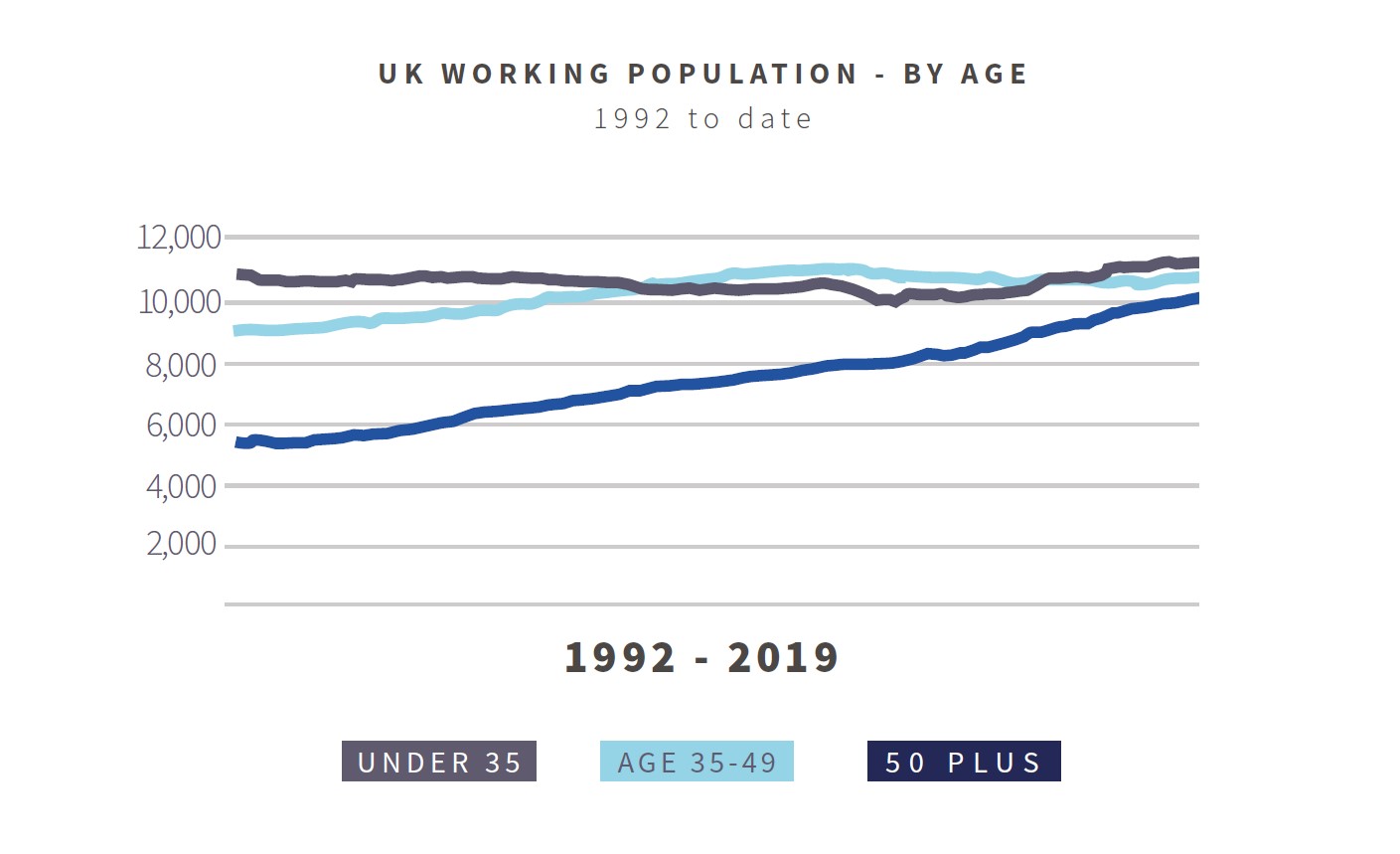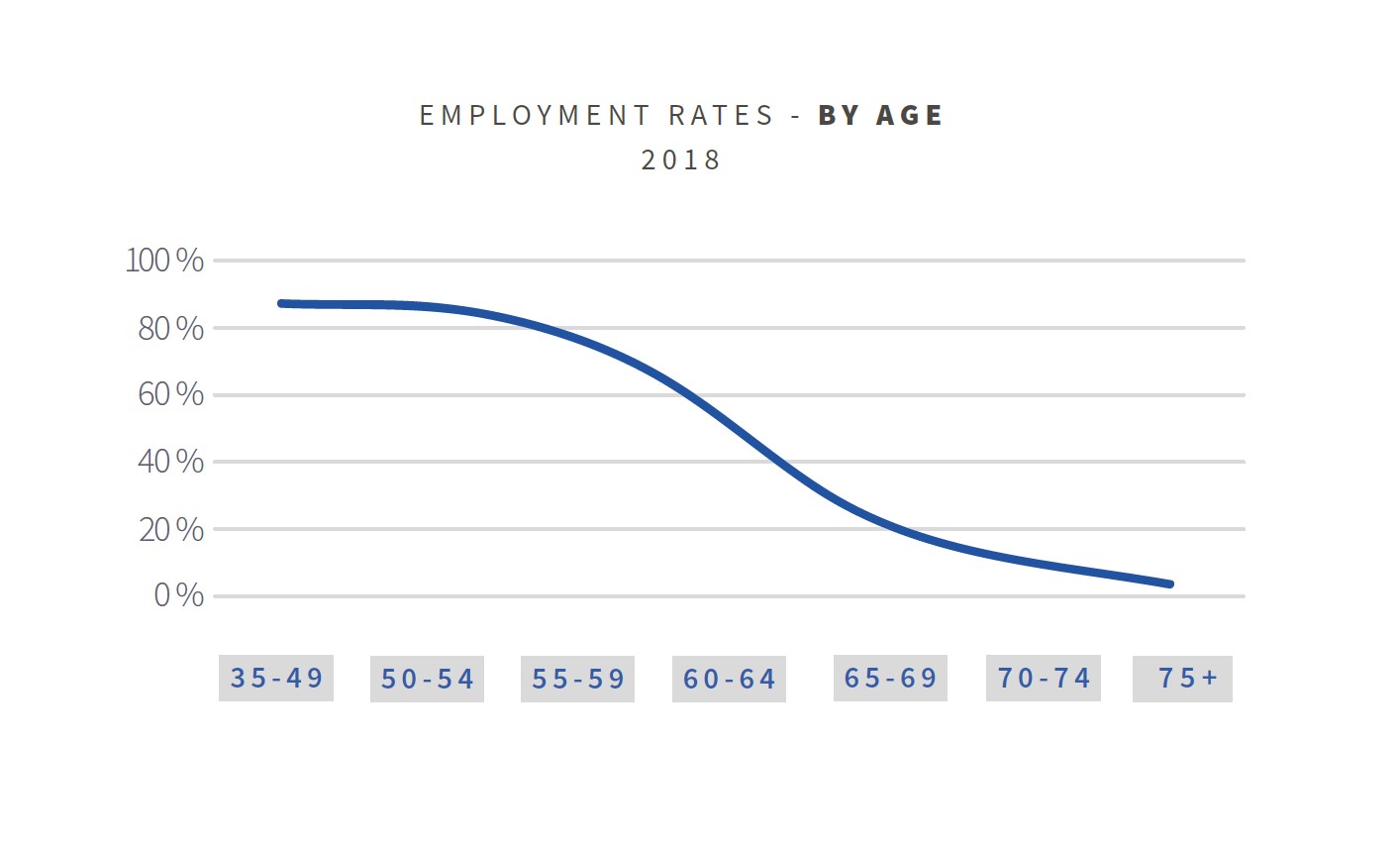More than a third of employees believe there is age discrimination in their workplace with half of employees aged 60+ not ready to retire. The majority feel they share invaluable skills, experience and knowledge with colleagues – but not valued by their employer.
More than a third (37%) of employees aged 45 and over believe that age discrimination is an issue where they work, according to new analysis1 from Aviva. Those aged 55 to 59 feel this most strongly (41%).

Feel younger colleagues are favoured over older generations

Believe their age has become a barrier to career progression and development
Over half (53%) of employees aged 60 and over are not ready to retire, increasing to 61% for people still working past the age of 65.
The study among employees and employers highlights that working for enjoyment and the benefit of social interaction increases with age. Those who are still working in their 60s are more likely than those in their 40s and 50s to be motivated to do so because they enjoy their job, or for the social benefits of interacting with colleagues and others in the workplace.
Attitudes to work in mid-life among those who are still in work
 Source: Aviva, 2019
Source: Aviva, 2019
Workers in mid-life have typically amassed significant skills, experience and knowledge, creating ‘muscle memory’ that can be invaluable to their employer. However, the research – which examined employee and employer attitudes towards ageing in the workplace – highlights a potential ‘brain drain’ unless businesses do more to support this growing demographic.
While the majority (73%) of workers in their 50s and 60s feel they share invaluable skills, experience and knowledge with colleagues2, Aviva’s findings reveal that 16% of mid-life employees feel this is not valued by their employer.
Many employers share employees’ concerns about age discrimination. Almost a fifth (19%) of employers said it was a main concern of theirs while 20% said they were concerned about how they will respond to the challenge of an ageing workforce.
Companies missing out on the talent and potential of an ageing workforce
Aviva’s findings highlight the need for companies to put the right support in place to ensure employees in mid-life feel valued at work. There are currently a record 10 million workers over the age of 50 and in the next decade, this population is forecast to grow to represent more than a third of all workers in the UK3.

Without the right support in place, companies are potentially missing out on the talent of this important age group; nearly nine in 10 people are in work at the age of 50, yet this falls to less than one in two for employees in their mid-60s4.

Lindsey Rix, Managing Director of Savings and Retirement, Aviva, commented: “Age should not be a barrier to opportunity – but our findings suggest employees are worried about age discrimination. We want to challenge this concern.
Evolving social and workplace trends mean we must all be prepared for a more fluid working life. The mid-life population offers invaluable skills and experience that companies are potentially missing out on. Companies need to take action – not doing so risks a punishing labour shortage in the years to come and a huge waste of talent and potential.
To help equip its own staff with the tools needed to embrace fuller working lives, Aviva has launched its ‘Mid-Life MOT’ this month. Following a successful pilot in 2018, the programme will help encourage its people to consider aspects of their work, wealth and wellbeing from the age of 45.
Face-to-face seminars across Aviva UK offices will be complemented by an MOT guide, direction towards free online Aviva and government-backed resources, and a free 30-minute consultation with a qualified financial adviser.
The aim is to prompt Aviva employees to begin making plans to support the next phase of their work, wealth and wellbeing, and identify practical steps they can take to support a fuller, more rewarding working life.
Lindsey Rix continues: “It’s all too easy to get caught up in the essentials of day-to-day life and potentially lose sight of the bigger picture.
Notes:
(1) Research of 1,036 UK employers and 2020 employees aged 45+, conducted on behalf of Aviva by Censuswide, January 2019. All figures are based on this research unless otherwise stated.
(2) Analysis of Wave 8 of English Longitudinal Study of Ageing (ELSA): 2016/17, International Longevity Centre, January 2019
(3) Aviva analysis of ONS, summary of labour market statistics
(4) Aviva analysis of ONS, economic labour market status of individuals aged 50 and over, trends over time: October 2018


